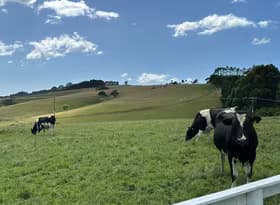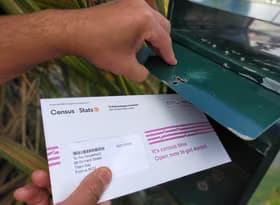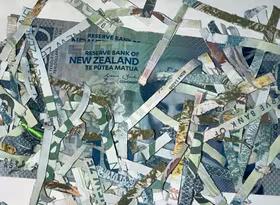Ten ways to kickstart your financial health
This Top 10 explores ways of getting into financial health and avoiding debt-traps from spending increases to your home’s ratings valuation.

1.
Households nationwide have recently received notices of changes to ratings valuations. In many cases, these increases have been sizeable, with the average Auckland household now boasting a $1m+ valuation attached to their humble abode.
But this constant chatter about home values is something that bothers me. We talk of how wealthy people have become and forget that many families’ finances are houses of cards built on debt.
Personal finance measures of success should instead be benchmarked on debt-to-asset metrics (i.e. net worth) and whether your income level sustainably supports your desired lifestyle. A recent Martin Hawes’ article sums up this logic succinctly:
“A more valuable house does not put cash in the home owner's pocket ready to spend – much of the increased spending comes from debt.
…
A more valuable house has not made any difference to their incomes.
…
Mostly the things which home owners go out and buy are "value losers"; things like cars, appliances and furniture which fall in value soon after they are purchased.
…
The wealth effect may spin the wheels of the economy, but buying stuff on credit is really a quick road to ruin.”

2.
People’s financial health appears a little different when we look beyond the family home and bring other assets, and debt into the equation. Statistics New Zealand estimates showed that the median New Zealand household had a net worth of just $289,000 in 2014/15. Even more interesting from a personal finance perspective are the vast differences between the net worth of different households.
“Five percent of households had negative net worth, and the largest proportion of households (25 percent) had a net worth between zero and $100,000. At the higher end of the distribution, 8 percent of households had a net worth above $1.5 million.”

3.
A recent survey by Statistics New Zealand showed that 90% of households say they earn just enough or more than enough income to meet their everyday needs. However, this self-reported measure of income adequacy is not supported by actual numbers on household income and consumption. National accounts data shows that households collectively spent $4.1bn more than they earned over the last year.
“It is not that long ago, though, that we were balancing our books. In 2012, New Zealanders saved a combined $3b between them.
"Household consumption expenditure increased across all categories in 2017, with large increases in restaurants and hotels, transport, and housing and household utilities," Stats NZ national accounts senior manager Gary Dunnet said.”

4.
To succeed in most things in life, you need a plan. A well-thought-out budget is key to adding zeros to your bank balance. It’s easy to do – the folks at Sorted have an easy budgeting tool. If you are not sold already, then consider this result from the Westpac Money Week survey:
“Only one in four New Zealanders have a documented budget, and only one in seven budget further than two months out.
The survey showed that those who did use a documented budget (a tool or app of some sort) had an average of $5,000 more savings and a third more likely to feel financially secure.”

5.
The word budget probably puts a shiver down some people’s spines. But that’s stupid. Budgeting is not about being a tight-arse, instead your aim is to spend money smarter.
After allowing for basic needs and savings, you still need to leave some discretionary funds for spending on the things you value in your world. This money can either be spent on day-to-day treats, or temporarily tucked away for periodic thrills, like a weekend getaway or a new bike.
The trick to allocating spending is getting the best bang for your buck – a balancing act between cost and how much you will enjoy the result.
“Recognize what you value and use your money on that. Or, recognize when spending more doesn't actually give you a "more" experience.
…
Imagine walking into a wine bar and asking for a recommendation for an easy-drinking red that is sure to please a crowd.
The employee gives you two bottles to choose from: A $25 cabernet and a $10 pinot noir.
Both bottles came with a positive recommendation and both are going to achieve your goals of being versatile and likely able to be enjoyed by a group. You're going to extract the same value and experience from the $10 bottle of wine that you would from the $25 bottle.
Buy the $10 bottle and move on.
You still used your money on something you wanted and you'll still get value out of it. But you also have more money in your pocket than if you had mindlessly chosen the pricier bottle because of whatever story you made up about what it means to "act" rich.”

6.
No matter how hard you budget, the reality may be that you just don’t earn enough for the lifestyle you need/want. Going cap in hand to your boss might work for a lucky few. Others may like to consider getting a side hustle. Start a small enterprise, become an Uber driver, or rent out the spare room on Airbnb. Many kiwis have a second job:
“About 2.5 million people were employed in the June 2017 quarter, of which 154,200 (6.1 percent) said they had two or more jobs, according to the Household Labour Force Survey (HLFS).
…
“The majority of multiple job holders tend to be of an age at which they are more likely to have mortgages and dependent children,” labour and income statistics manager Sean Broughton said. “Although financial pressure could be one of many reasons for holding a second job.”

7.
Sometimes the unexpected happens – the car breaks down, the roof springs a leak, or you find yourself twiddling your thumbs for a few weeks between jobs. For these situations, you need a rainy-day fund. This fund gives you something to tide yourself over, instead of being held hostage by pay-day lender heavies, or withdrawing cash at high interest rates using your credit card.
Sadly, most New Zealanders don’t have savings in case of an emergency. A recent BNZ survey showed that 22% of people have no money set aside for emergencies, while a further 24% have less than $1,000.
“Having an emergency fund can provide peace of mind and help people make better decisions when life doesn’t go according to plan.
“All it takes is for your car to fail its WoF and you need a new set of tyres and people without anything set aside can find themselves racking up debt quickly, often on their credit cards. For many, it can take a long time to pay it all off and get themselves back on track because of the higher interest rates that credit cards carry.”

8.
Anything you can’t stand to lose should be insured. As a young person, your insurance needs will be simpler things like car insurance – just so that pinging the neighbours new BMW doesn’t bankrupt you.
As you get older, and dependents creep in, insuring things like your income and life become important so your kids are supported no matter what. Shop around by all means, to ensure you get the best deal. But don’t leave your future and your kids’ futures to a game of roulette by flying naked.
“When considering getting insurance we need to weigh up the risks of not having the insurance against the costs of buying it. Ask these four questions:
What is the risk I would be insuring against?
What are the chances of it occurring?
What would happen?
How much would it cost?”

9.
It’s 10 years since KiwiSaver entered our lives and since then KiwiSaver balances have grown to $40.8 billion. Surprisingly, with so much money at stake, most KiwiSaver members are very hands off. There were 67,611 new members allocated to a default KiwiSaver scheme in the March 2017 year and only 16,902 default members made an active fund choice.
Such ambivalence leads to question marks regarding whether people are in funds that best suit their stage of life. The Financial Market’s Authority is so concerned they have strongly outlined concerns to the CEOs of default providers:
“We expect efforts and results to improve
We expect the undertakings about addressing the financial literacy of their members, made in their tender for default status, are delivered upon, or updated to something more effective
We want reporting on their broader education initiatives for all members – not only default members – to focus not just on what they are doing, but to evaluate their effectiveness
Their member financial literacy efforts will form part of our ongoing engagement with them through the default monitoring panel, supervisory visits and other meetings
We are prepared to partner with them in behavioural insights trials, to address default member engagement or other challenges.”

10.
The lack of financial literacy highlighted by the FMA in its KiwiSaver review is a sad reflection of New Zealand’s finance industry. Personalised financial advice is expensive and out of reach of many New Zealanders.
Most finance advisers prefer to only offer their services to those with money to invest. The typical adviser earns their keep by clipping the ticket of what they manage.
A select few advisers shun these purely wealth management focussed strategies, and will deliver personalised financial plans, with regular check-ins, for a fixed fee. These fixed fee advisers are more accessible for those starting out, but may still be out of reach for those on meagre incomes.
A new start-up, called Sharesies, is trying to get people from all starting points excited about building wealth, and teach people along the way:
“We want to make this generation the most financially literate. Starting with making investing easy — by breaking down the current barriers that stand in the way of investing today. We want someone with $50 to have the same investment opportunities as someone with $50,000.
We have an opportunity to make a real difference to how people manage their money and growing the wealth of everyday New Zealanders. We want our friends and others like them around buying and selling shares, comparing portfolios and giving each other tips to grow their wealth. Getting gratification from spending $20, not just on brunch, but investing in the portfolio sitting in their pocket.”












